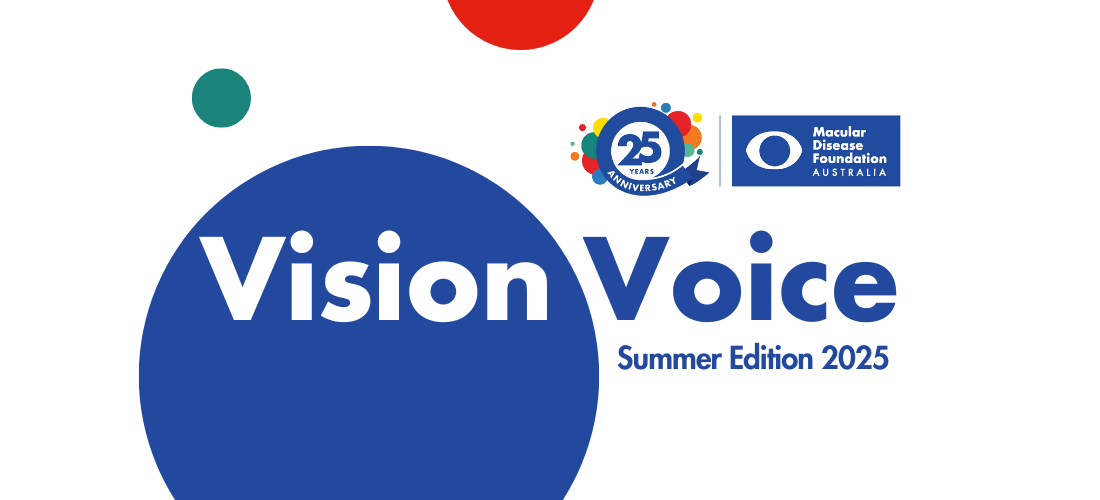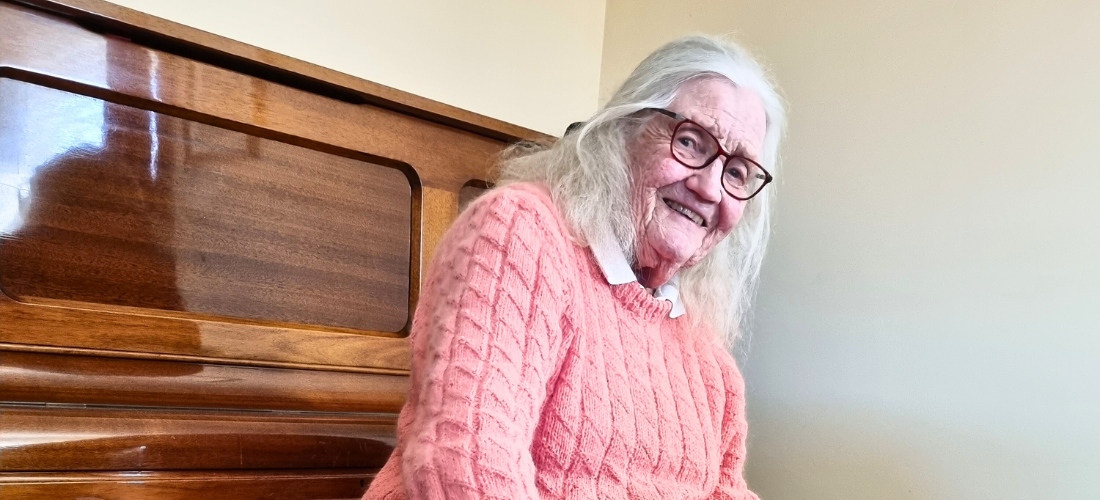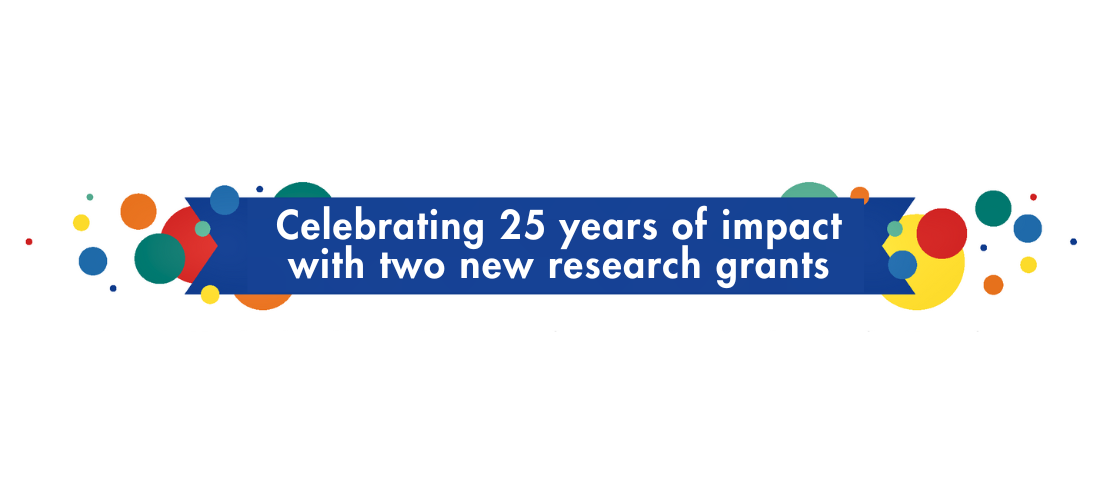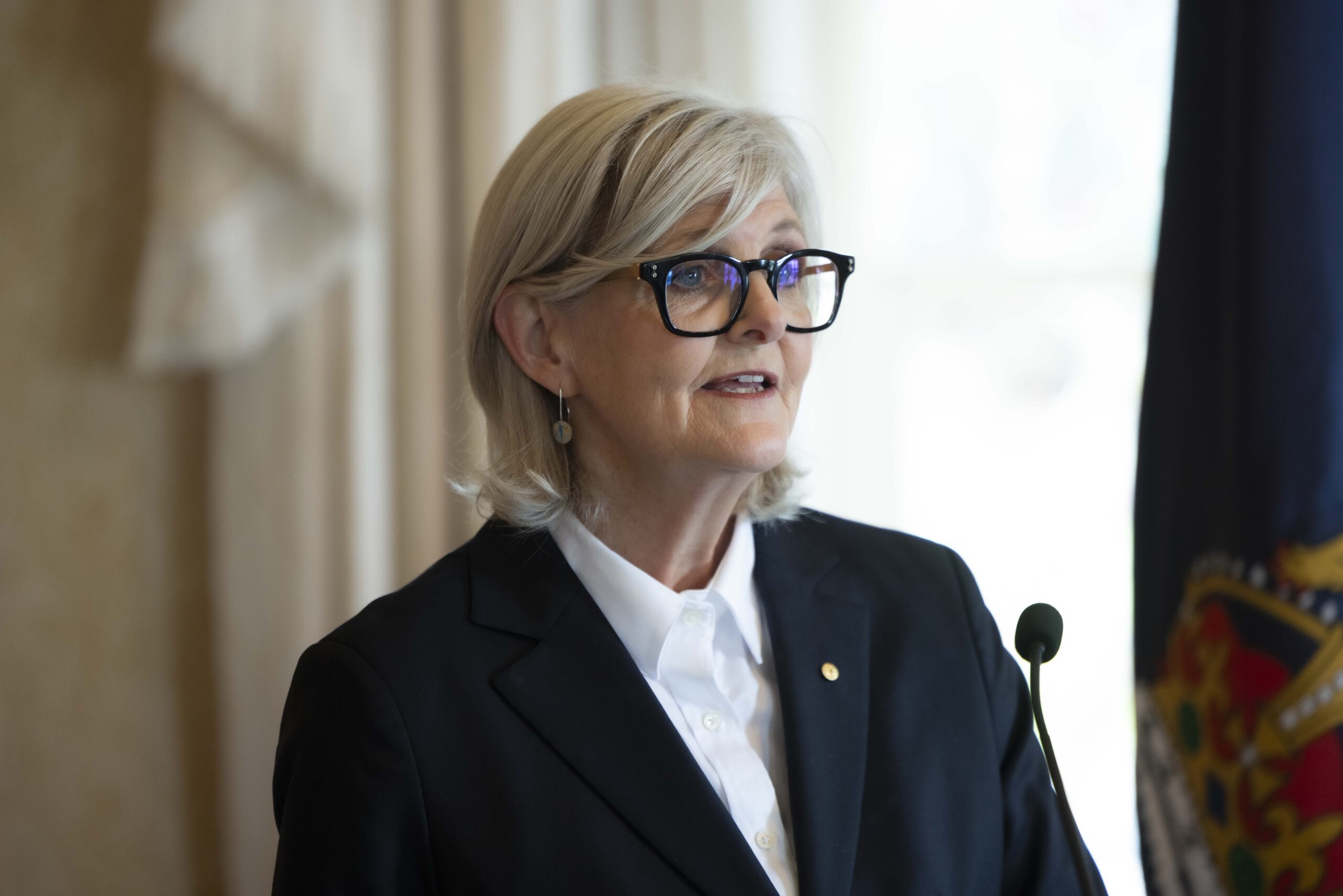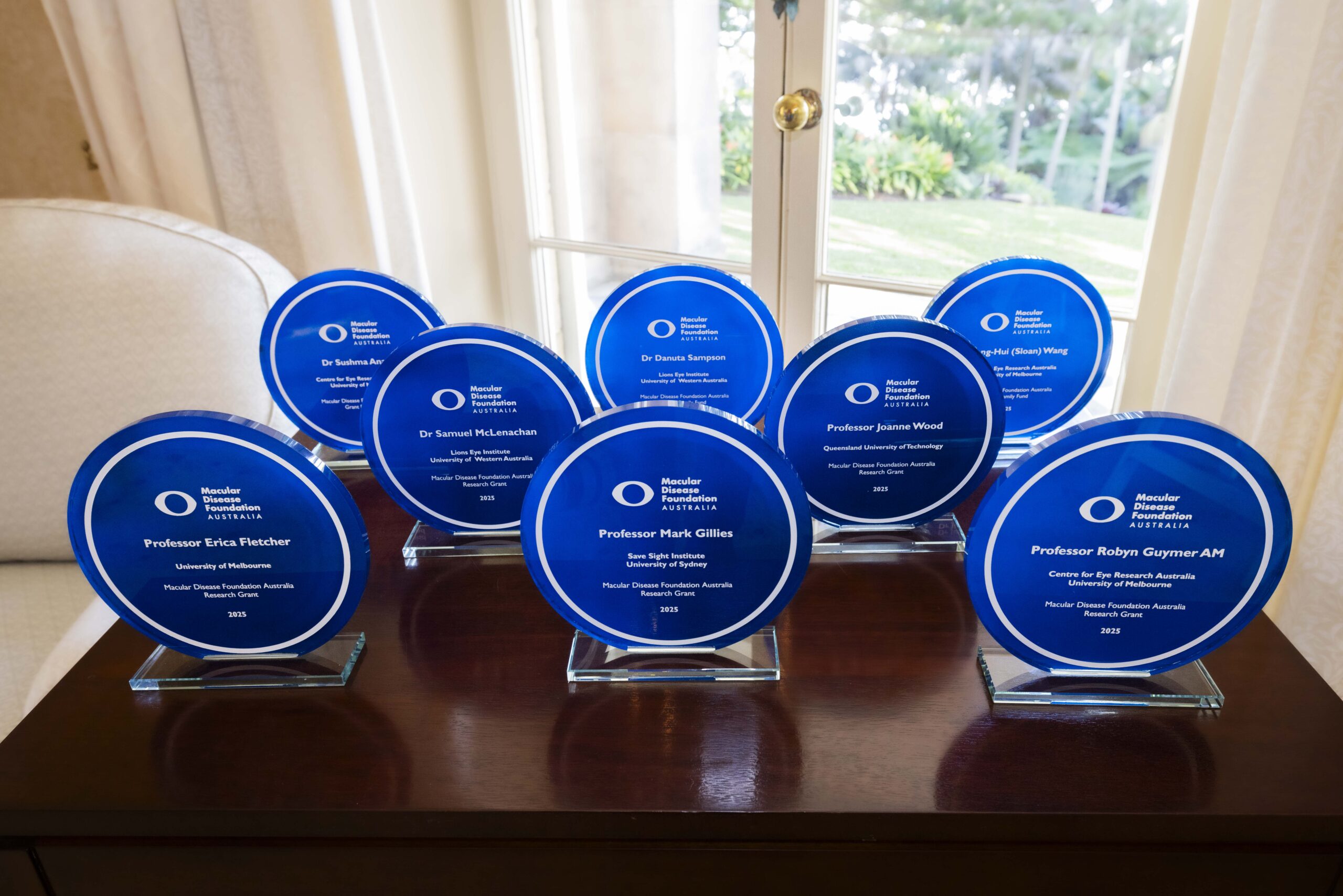FRB! project goes global
Professor Mark Gillies’ Fight Retinal Blindness! project is an online database tracking the treatment journey of thousands of patients living with retinal diseases – particularly people receiving anti-VEGF injections for wet AMD.
A 2015 MDFA Research Grant enabled Prof Gillies to expand this registry around the globe.
Established in 2007, the FRB! Project now gathers precious data from more than 500 practitioners spanning 23 countries across Europe, Asia, Africa and the Pacific – including 151 in Australia. Prof Gillies then uses this data to analyse the factors that make treatment more effective, thereby saving sight.
MDFA funding helped Prof Gillies to grow the FRB! project into the world’s leading registry of high-quality data on the outcomes of treatment of macular disease and set international benchmarks for how the best outcomes for wet AMD can be achieved in real-word clinical practice.
Clinical trials vs real world results
When anti-VEGF agents first became available in 2006, clinical trials showed excellent results.
However, these studies took place in ideal standardised conditions, and usually involved frequent injections over only two years.
On the other hand, Prof Gillies’ observational study looks at what happens in the real world, where anti-VEGF injections can occur much less frequently over a much longer period.
By gathering data from thousands of people with AMD, diabetic retinopathy and other retinal conditions, the FRB! project enables Prof Gillies to analyse the long-term outcomes of anti-VEGF treatment in large and diverse groups of patients around the world.
This helps him then identify the variables that make therapy more successful, such as the type of anti-VEGF agent, the time between injections, and the clinical setting.
MDFA Research Grant funding
Prof Gillies’ grant funding supported two projects. One examined the outcomes of wet AMD patients receiving anti-VEGF injections over the course of 10 years – the world’s first analysis over such a long period.
Prof Gillies established that the treat-and-extend regimen – where the time between injections is extended as long as no new abnormal blood vessels form – appears to be the most efficient way to deliver an adequate number of injections. Eyes with good vision to start with were also more likely to complete 10 years of treatment.
The second project is comparing the effectiveness of the two leading anti-VEGF agents ranibizumab and aflibercept for diabetic macular oedema. The FRB! project has already shown that these two drugs deliver similar outcomes for wet AMD, despite the original suggestion that aflibercept was stronger and lasted longer than ranibizumab.
Analysis of this data began this year. Prof Gillies expects to find points of differentiation between the two drugs, which will help clinicians identify the best drug for specific patients.
The FRB! project also lets clinicians generate reports that graph their patients’ visual acuity alongside their treatment pattern, charting their response to anti-VEGF injections. This helps the clinician conduct self-audits and compare their performance to other practitioners, as well as understand what works best for their individual patients.
Prof Gillies’ research has led to further funding from pharmaceutical companies Bayer and Novartis as well as the Singapore National Eye Centre, and will form the foundation of a major NHMRC application in 2021.
While the FRB! project has mainly focused on wet AMD to date, Prof Gillies now plans to examine other retinal conditions – specifically diabetic macular oedema and retinal vein occlusion – in even more locations around the world, particularly Europe.
This article was first published in our booklet marking 10 years of MDFA’s Research Grants program, released in May 2021.
Celebrating the 10th anniversary of MDFA’s Research Grants Program, this free publication introduces you to all the talented researchers your donations have funded since 2011.
Download









